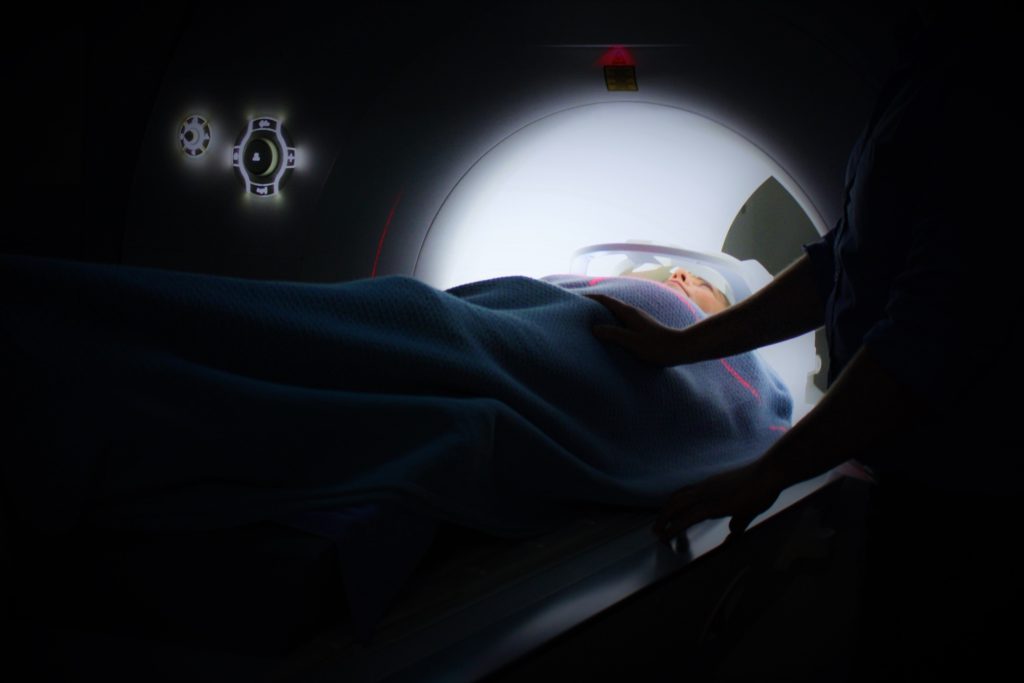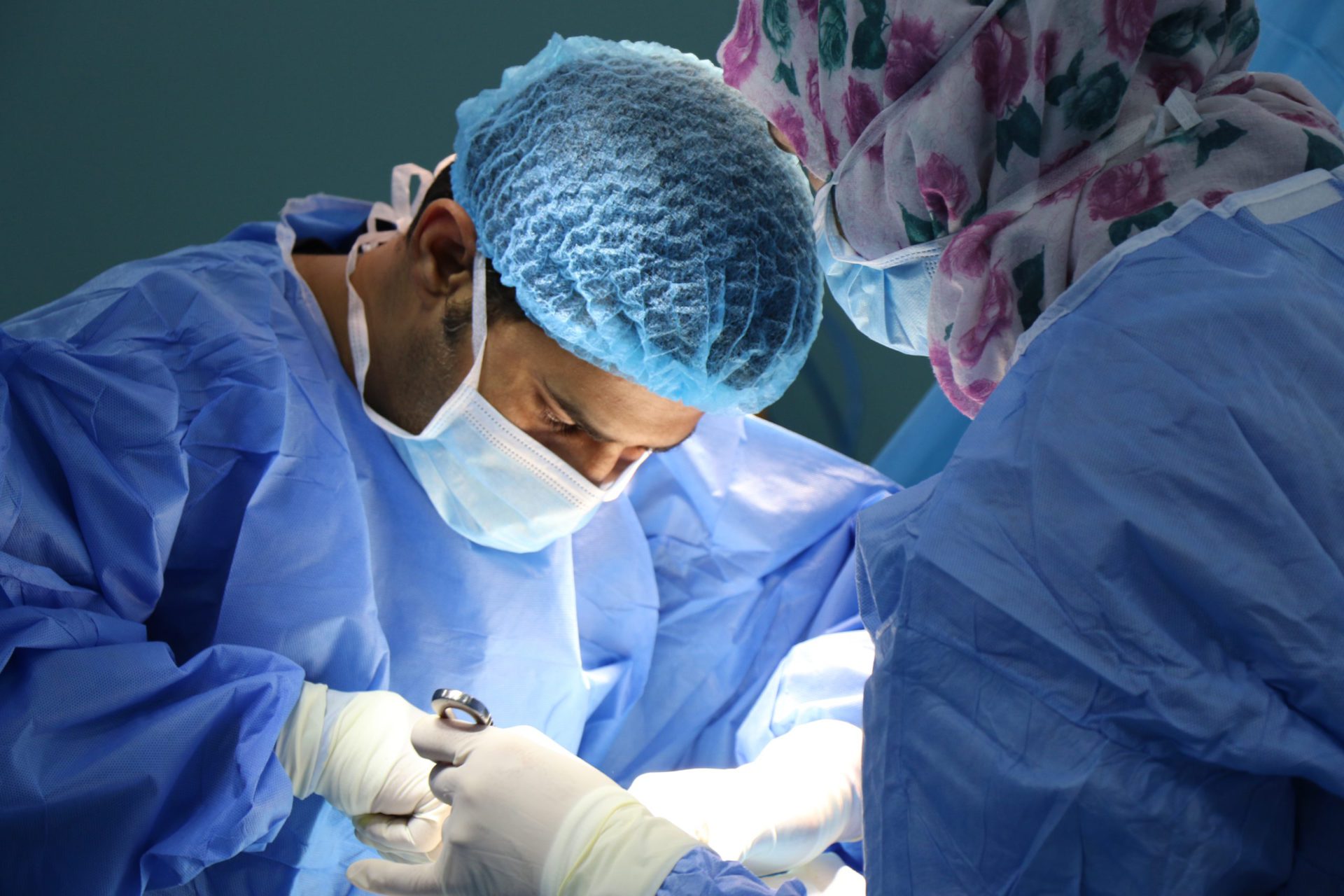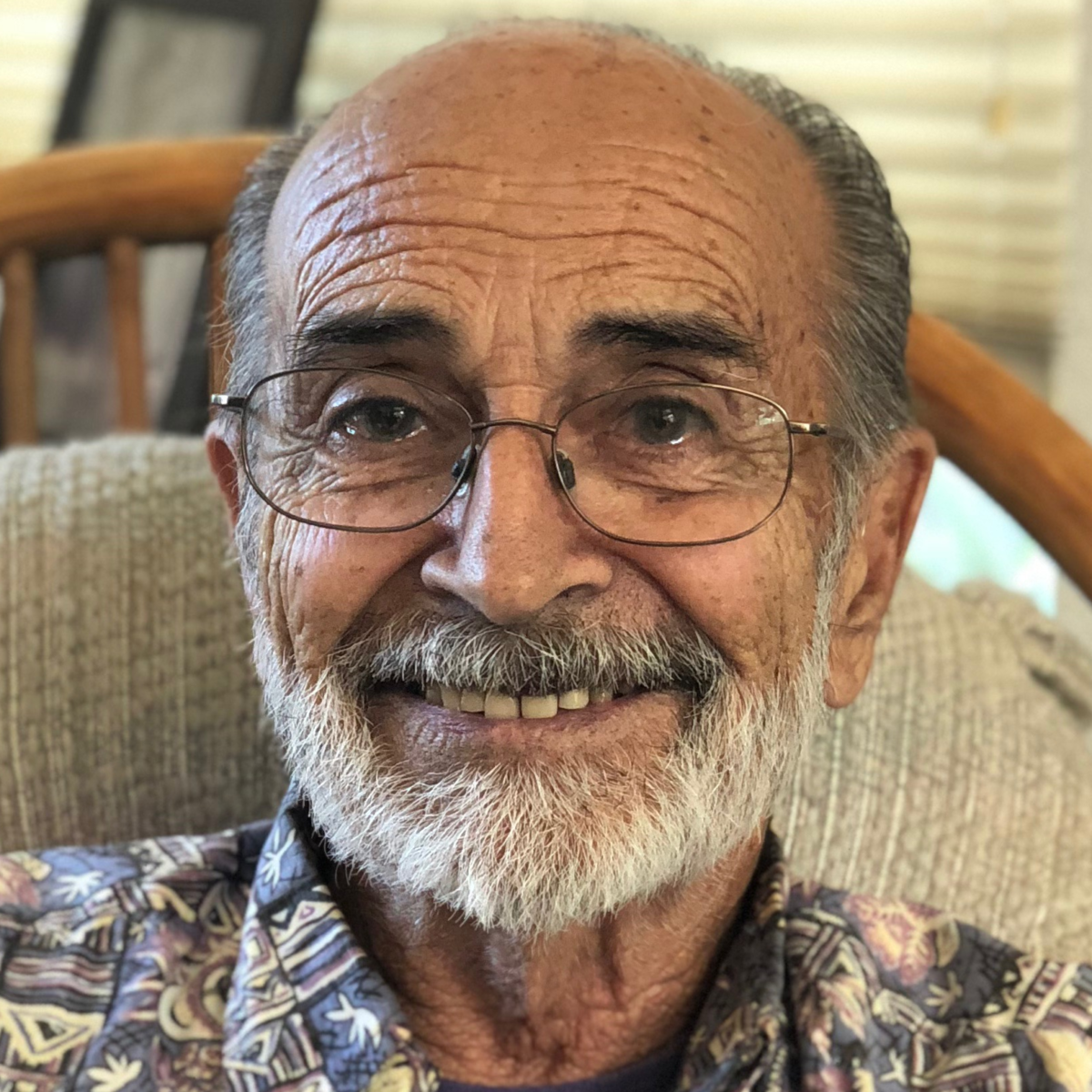Louis’ Gastrointestinal Stromal Tumor Sarcoma Story
Louis shares his gastrointestinal stromal tumor (GIST) story, a type of sarcoma, and the surgery and maintenance chemotherapy that saved his life. In his story, Louis also highlights how he got through treatment with his positive attitude.
- Name: Louis D.
- Age when diagnosed: 77
- Diagnosis:
- Gastrointestinal Stromal Tumor or GIST
- Type of sarcoma
- 1st Symptoms:
- Constantly feeling the need to urinate
- Treatment:
- Surgery
- Maintenance chemo (oral pill)
I personally feel real positive. I had some very good doctors. Everybody was very straightforward with me, very positive.
I think if anybody goes through this type of thing, they need to try and have a good positive attitude and work with your doctors.
Louis D.
This interview has been edited for clarity. This is not medical advice. Please consult with your healthcare provider for treatment decisions.
Diagnosis
Describe your first symptoms
The first symptom that really made me pay attention was the urination, having to go constantly. Being worried about not being close to a restroom or something. It caused me to go see my urologist who I had had from a prior issue.
Path to diagnosis
Summary:
- Ultrasound
- CT scan
- Biopsy
- MRI
Describe the ultrasound
The doctor did an ultrasound and detected a mass sitting on top of my bladder. He indicated to me that was the reason I was having urination problems.

Describe the CT scan
He scheduled me for a CT scan. We did that and then went back to see him, he says yes there’s definitely a mass sitting on top of my bladder and it’s quite large.
He then referred me to a local doctor, and I went and saw him. He was very, very straightforward. I felt really comfortable with him.
He gave me a good diagnosis of what the situation was. He was very good about telling me what the procedure would most likely be, what the options were.
What happened at the biopsy
They had also scheduled me for a biopsy to confirm whether it was malignant or not. It turned out to be malignant. They took three samples.
In this case, I laid on a gurney. The girls prepped me, put some liquid on my abdominal area. The doctor came in, introduced himself, told me exactly what he was going to do.
He said they would give me a shot that would numb the area and that I wouldn’t really feel anything except the initial injection. It was a needle with another needle inside of it that did the biopsy.
He was right, I felt the first needle but I did not feel a thing after that. I was not out, they didn’t sedate me or anything. It went fairly quickly.
The paperwork took longer than the actual procedure which was about 15 minutes, very quick. I think we got the results a couple days later.
Describe the MRI
That’s when we did the MRI. It’s actually fairly simple.You lay down on a motorized tray and they have this big donut in front of you and they wheel you into it and it takes magnetic images of you.
It makes a lot of noise. You have to lay there very still. Depending on how much of an area that they want an image of will determine how long you’re going to be in it. The area they were concerned with was approximately a foot area across my intestinal area. It took about a half an hour.
They needed contrast on mine and they were able to do that so they gave me a shot to give me contrast. It came out really well. My doctor said it was a good image. I went into the hospital at Salinas Valley Memorial. We had surgery Monday morning.
How was the wait after the biopsy?
I was still working at the time. The biopsy was on my mind and of course I wanted it to be negative. To be honest, I really didn’t fret about it too much.
I tried to be very positive about it. It’s kind of ‘it is what it is and we have to live with it.’
I personally felt positive about it and was hopeful that it was going to be a negative biopsy but it turned out to be positive. We just had to proceed and do what was necessary to take care of it.
Generally, I felt really positive about it. I felt real good about the doctors involved. I think that helps a lot about your mental health. It’s who you deal with.
»MORE: Patients describe dealing with scanxiety and waiting for results
Was there staging
They never indicated to me what the staging was. The doctor said it was encapsulated which I assumed meant it was self intact, which was a very positive thing.
There was less of a chance of it growing or getting into the bloodstream. I feel very fortunate about that.
I asked the doctor about that and he really didn’t have an answer. He just said it’s one of those things that happens and that cancer cells are always within the body, and the body’s immune system is always fighting them off.
Within the body there’s always a constant battle. It’s just that sometimes some of the cancer cells get out of hand and overpower the immune cells, then they start growing. That was the best explanation that he could give me at that time.
Surgery and Preparation
What was the prep before the colonoscopy
Bowel cleansing. I had a weekend to go through the cleansing process with the intestines. I picked up the prescription on Friday. The doctor had called it in.
What you do is you go to the pharmacist and you get a big plastic bottle, about a gallon. It has a little packet with it of powder that you mix with water and it’s not the best-tasting thing in the world but you have to consume it every 15 minutes. You have to drink a cup until it’s all gone.
What it does is flushes out your intestines and it’s a prep for surgery. It makes sure that the doctors don’t have to deal with any discharge, to put it best.
In the particular surgery that I had, the doctor wanted to do a colonoscopy to make sure that there was nothing on the inside that might not have shown up. By Monday I was cleaned out inside and ready to go.
When you come out of the surgery and after the colonoscopy, your bowels really don’t have to do any prepping, they just go back to being normal and you can go back to being a regular diet. So there’s no aftermath to the body with the cleansing process.
»MORE: Read more patient experiences with surgery
Describe the surgery for your GIST
I went into the hospital on Monday morning and checked in. Prior to the biopsy I had already registered with the hospital so my checking in for the surgery, all the paperwork, was already taken care of. I checked in. They came out and prepped me.
They have you remove all your clothes and put on that silly gown. It was fairly simple. They put you on a gurney, they tell you what they’re going to do.
The nurses were fantastic. They give you a shot and you’re out. You really don’t feel anything, you don’t know anything, the next minute you find yourself in a room up in the third floor and the nurses are covering you up and they’re talking to you.

Liquid diet post-surgery
They want to know what you want for lunch. They tell me all I can have is liquids for a couple of days so I came out of the anesthesia really, really well.
Ironically I didn’t have any pain which kind of surprised me. I felt actually very comfortable until I tried to move in bed. Then I could feel a stretch on my abdominal six-pack which really isn’t there but that area!
That kind of remained with me probably up until the fourth day when it really started to disappear. The pain from putting stress on your abdominal muscles just went away and it was better everyday. You could really tell it was going away and you’re feeling quite comfortable. It didn’t hurt to get up anymore.
How was the overall surgery experience
The whole procedure was very good, it was very comfortable, I felt real good about the way everything went. The staff at the hospital was fantastic. They really took care of me. They forced me to get up and walk which I really needed to do for a few times.
The surgery took about an hour-and-a-half. That’s what the doctor said. He told me that he made the incision and once he got his hands in there and felt how large the tumor was, he had to make the incision larger to be able to remove it all in one piece.
He didn’t want to penetrate it, he wanted to be very careful with that. Other than that, he took it out, he had to do it a little resection of my bowel and then stapled me together.
He said the tumor]was 17 centimeters which is approximately 7.5-8 inches and weighed somewhere around five pounds. I can feel the lightness. I’ve lost about 25 pounds.
I hope to gain that back relatively soon but my little potbelly is gone. I get my six-pack back! Once I got comfortable with that, I got out there and walked on my own.
Overall, it was a good procedure. It went a lot quicker and a lot better than I thought it would. I was more concerned that I would be in a lot more pain than I was, and I really wasn’t.
I was happy to leave but it was just really phenomenal the whole process. Felt very comfortable about it.
Did anything unexpected happen during surgery?
The doctor spotted another polyp while he was there and removed that. It’s my understanding that the tumors were right next to each other.
When I had the biopsy, on a call that just came in, the doctor did a preliminary biopsy when they first took the samples and said the type of tumor, which it was a GIST, is usually very slow-growing so he said it could have been there five years ago. It could have been there seven, eight, ten years ago.
It just grew very slowly and was soft tissue type but it was quite large. Doctor said it was the size of a cantaloupe.
After Surgery
Follow-up after surgery
I followed up with my doctor in his office and he took out the staples. That was just a week after surgery. It was pretty quick.
In the beginning when we had discussed the whole thing, he had told me that we would very definitely do some chemo, that the oncologists would determine what the chemo would be and how long the process would be.
How was the appointment with the oncologist
We discussed that at length that she had all my records and they had me fill out my family history and all that. She already had pretty much a diagnosis and what type of chemo she would be doing but she would update after reading my history.
We would probably in another two weeks or so start the chemo. They were going to contact me and make an appointment to start that process.
Maintenance chemo
I take a maintenance chemo pill, a tablet of some kind. Everything’s been removed. The doctor and the oncologist feel good about that but they don’t want anything else to start up so they would be doing a maintenance chemo.
The doctor said it would probably be about three years and the oncologist confirmed that, so probably a three-year process.
Will there be any side effects with the chemo
The oncologist said there were side effects but everybody’s body is different and different people have different side effects, maybe very light, maybe very severe.
It’s hard to say until you go through the process. One of the things she said some people throw up a lot. Other people just have stomach pains and nausea, that sort of thing, so I think we’re at a point to see what that’s going to be.
»MORE: Cancer patients share their treatment side effects
How are you feeling now
I still feel positive. A little apprehensive about the side effects but like I said before, it is what it is. We need to follow the doctor’s advice and go through the procedures, do whatever’s necessary. Do whatever it takes.
It’s all we can do at this point. Can’t walk away from it, that’s for sure. I think we’re okay. We’re going to fight this, we’re going to beat it.
I’ve got a lot of things to do yet.

Inspired by Louis's story?
Share your story, too!
Gastrointestinal Stromal Tumor (GIST) Stories
Louis D., Gastrointestinal Stromal Tumor (GIST)
Symptom: Feeling the need for constant urination
Treatments: Surgery to take out the tumor, maintenance chemotherapy (3 years)
...
